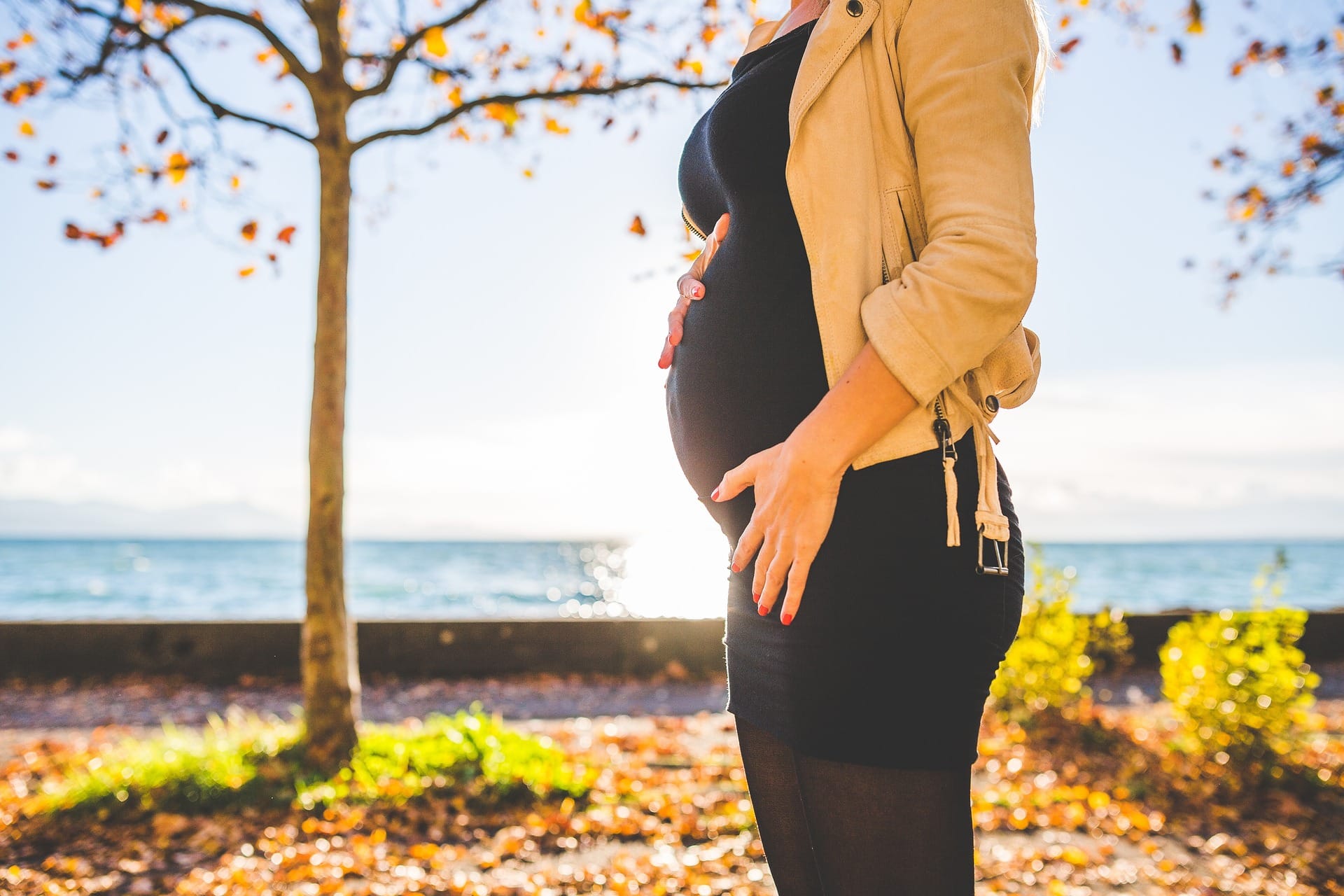The journey of motherhood begins with the first step into the world of pregnancy, and often, that initial step is taken in the form of subtle yet discernible changes within the first month. This crucial time marks the onset of numerous physical, emotional, and hormonal transformations, many of which may be early indicators of pregnancy.
In this comprehensive guide, we’ll unveil the secrets of this initial phase by exploring the signs and symptoms of pregnancy in the first month. We’ll navigate the terrain of missed periods, hormonal fluctuations, and the emergence of early pregnancy symptoms. Whether you’re actively planning for a family or unexpectedly finding yourself on this path, this article is your compass, providing invaluable insights into what to expect in those early weeks.
Understanding the First Month of Pregnancy
The first month of pregnancy, often referred to as the “early weeks,” is a time of significant change within a woman’s body. However, it’s crucial to acknowledge that many women might not even be aware of their pregnancy during this period, as it’s often before a missed period and other noticeable signs. But beneath the surface, intricate processes are already unfolding.
Early Pregnancy Symptoms: What to Expect
As we venture further into the first month of pregnancy, you may begin to notice a series of distinct changes and sensations that are not only intriguing but also indicative of this transformative phase in your life.
Let’s delve into some of these early symptoms:
01. Missed Period: The First Clue
One of the most common and reliable indicators of early pregnancy is a missed period. For women with regular menstrual cycles, a missed period can be a strong hint that something unique is happening. It occurs because the fertilized egg, if there is one, implants into the uterine lining, leading to changes in hormone levels that halt the menstrual cycle.
However, it’s important to note that some women experience slight bleeding or spotting, known as implantation bleeding, which can be mistaken for a light period. So, if you suspect pregnancy after a missed period, it’s a good idea to take a pregnancy test for confirmation.
02. Hormonal Changes: The Catalyst
In the first month of pregnancy, hormonal changes set the stage for the journey ahead. The body starts producing human chorionic gonadotropin (hCG), a hormone that is responsible for maintaining the corpus luteum. This hormone, often detected in pregnancy tests, plays a critical role in supporting the early pregnancy and preventing the shedding of the uterine lining.
The increased production of hCG can lead to heightened sensitivity to its presence in the body, potentially causing changes in mood, energy levels, and even the sense of smell.
03. Breast Changes: Early Signs
Another early sign of pregnancy is breast changes. Women may notice their breasts becoming more tender and swollen, often accompanied by a heightened sensitivity. This is a result of hormonal shifts preparing the body for potential breastfeeding. While breast changes can be associated with other factors, when combined with other symptoms, they can be a strong indicator of early pregnancy.
04. Fatigue: A Constant Companion
Pregnancy brings an increased demand on your body, and fatigue often accompanies this change. Hormonal adjustments and the work your body is doing to nurture a developing embryo can lead to persistent tiredness. If you find yourself needing more rest than usual, it might be a telltale sign of early pregnancy.
05. Frequent Urination
The need for frequent bathroom trips may become apparent early in your pregnancy journey. This is due to the growing uterus exerting pressure on the bladder. Frequent urination can be disruptive but is a normal part of early pregnancy.
06. Food Aversions and Cravings
Changes in your sense of taste and smell can trigger food aversions and cravings. Suddenly, the
aroma of certain foods you once loved may be unappealing, while you might find yourself
craving peculiar combinations. These culinary preferences can be quite distinct during the first
month of pregnancy.
07. Morning Sickness: Nausea and Vomiting
Morning sickness, which can strike at any time of day, is a hallmark of early pregnancy. It’s often marked by nausea, sometimes accompanied by vomiting. The causes of morning sickness are complex and may involve hormonal fluctuations. While challenging, it’s a positive sign of your body’s response to pregnancy.
Deciphering Early Signs of Pregnancy Discharge: Key Insights
08. Heightened Sense of Smell
Many expectant mothers report a heightened sense of smell during the early weeks of pregnancy. Odors that once went unnoticed may now become overwhelming. This heightened sensitivity to cents is often linked to hormonal changes and can trigger aversions or cravings.
10. Mood Swings: Emotional Rollercoaster
Hormonal fluctuations can also impact your emotional state. You might find yourself experiencing mood swings, ranging from elation to moments of sadness or irritability. It’s essential to recognize that these mood swings are a normal part of early pregnancy.
11. Basal Body Temperature: A Clue for Some
Some women who are actively tracking their fertility may notice a sustained high basal body temperature during the first month of pregnancy. This can be an early indication, especially if the elevated temperature continues past the expected date of menstruation.
12. Implantation Bleeding: A Light Sign
In some cases, women experience implantation bleeding, which is a light pink or brown spotting. This typically occurs when the fertilized egg attaches to the uterine lining. It’s one of the subtler signs of early pregnancy and can be easily confused with a light period.
13. Increased Sense of Fatigue
While general fatigue is common in early pregnancy, an increased sense of exhaustion can also be a sign. If you’re feeling even more tired than usual, consider it another possible symptom of the first month of pregnancy.
14. Frequent Headaches
The hormonal changes taking place in your body can sometimes lead to headaches. These
headaches can be bothersome but are typically not a cause for concern. Ensuring you’re wellhydrated and getting enough rest can help manage them.
15. Bloating and Constipation
Gastrointestinal changes, such as bloating and constipation, can also be early indicators of pregnancy. Hormonal influences on the digestive system can slow things down, leading to these discomforts.
16. Heightened Emotional Sensitivity
In addition to mood swings, you might notice heightened emotional sensitivity during the first month of pregnancy. Everyday events and interactions may evoke stronger feelings and reactions than usual.
17. Enhanced Sense of Taste
Just as your sense of smell can change, you may also experience an enhanced sense of taste. This can impact your food preferences and aversions.
18. Changes in the Skin
Hormonal fluctuations can affect your skin, leading to changes such as acne or increased
oiliness. Skin changes are not uncommon during early pregnancy.
19. Changes in the Cervix
Some women who are closely monitoring their cervical changes may notice differences in the cervix during the first month of pregnancy. These changes can include softening and changes in position.
20. Vaginal Discharge: Increased Secretions
An increase in vaginal secretions is also a potential symptom of early pregnancy. These secretions are often thin and white, a result of hormonal adjustments.
Conclusion
The first month of pregnancy is a time of subtle yet profound changes in a woman’s body. While these symptoms can hint at pregnancy, it’s essential to consult a healthcare professional and confirm with a pregnancy test. If you suspect you might be pregnant and are experiencing these symptoms, seek guidance to ensure a healthy and joyful pregnancy journey.
Each pregnancy is distinctive, and the symptoms experienced can vary from one woman to another. What matters most is receiving proper prenatal care and support as you embark on this extraordinary adventure.
FAQ for Symptoms of Pregnancy in the First Month
Certainly, here are five frequently asked questions (FAQs) that can be addressed in your article about the symptoms of pregnancy in the first month:
Yes, it’s possible to experience symptoms of pregnancy in the first month, although they can vary from person to person.
The most common early signs include missed periods, tender breasts, fatigue, frequent urination, changes in food aversions and cravings, and more.
Distinguishing pregnancy symptoms from other issues can be challenging. It’s crucial to consider multiple symptoms together and, when in doubt, take a pregnancy test.
Yes, mood swings and emotional sensitivity are often early signs of pregnancy due to
hormonal fluctuations.
If you suspect you might be pregnant, it’s advisable to take a home pregnancy test, consult a healthcare professional, and begin prenatal care if the test is positive.







